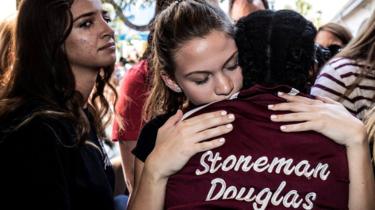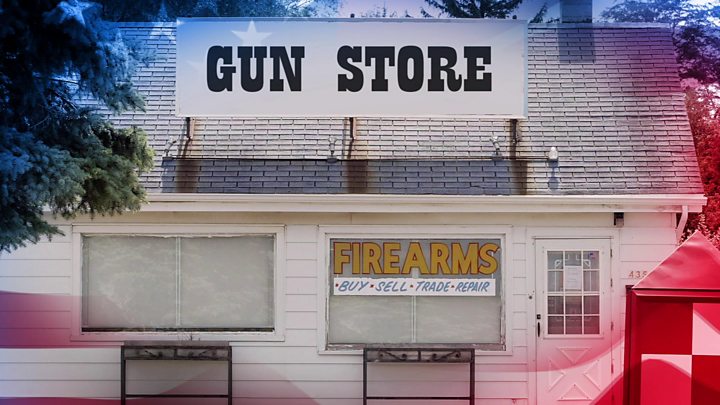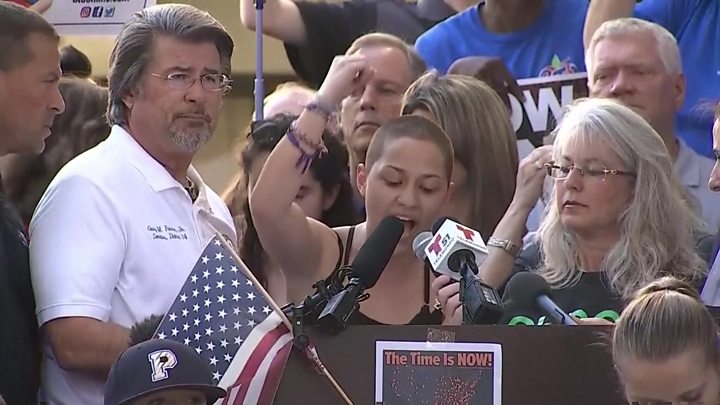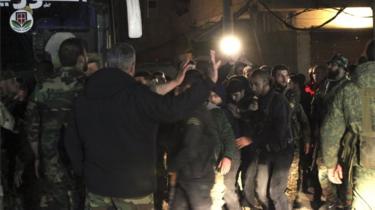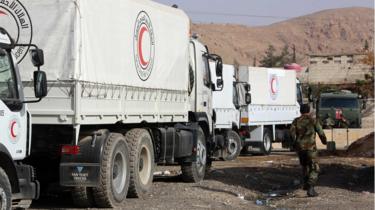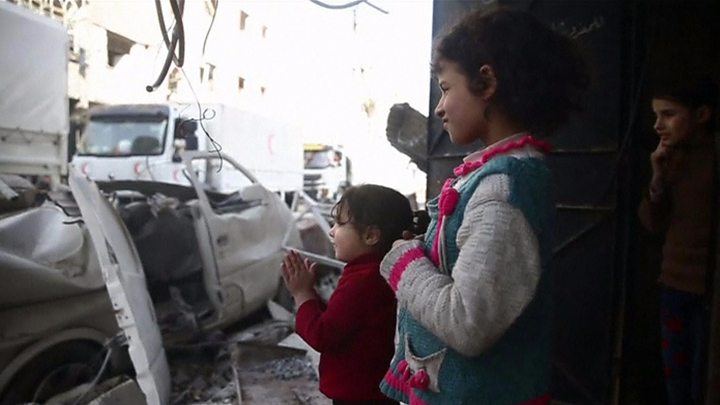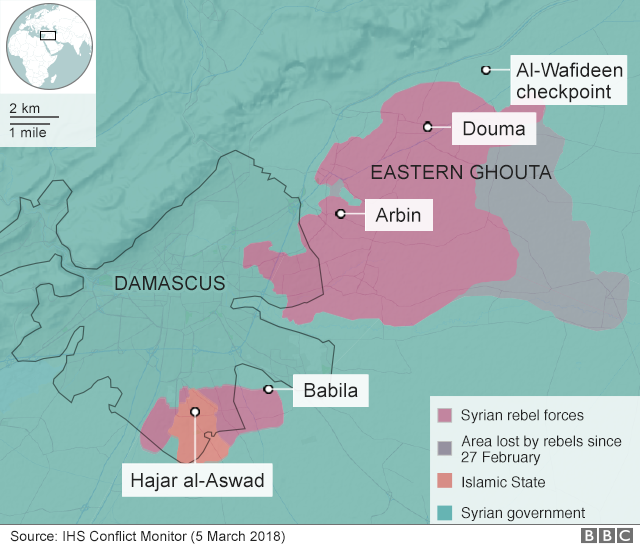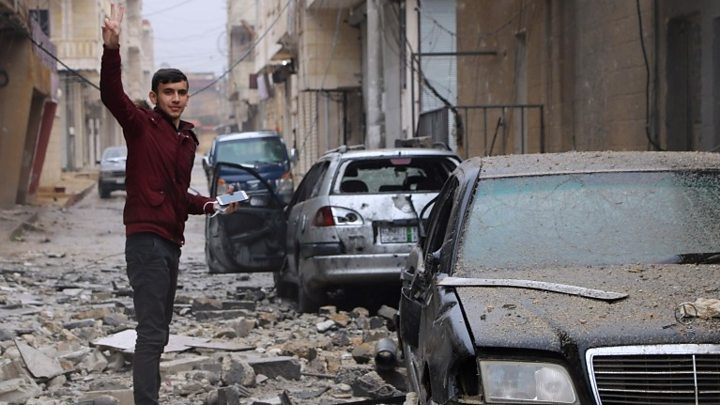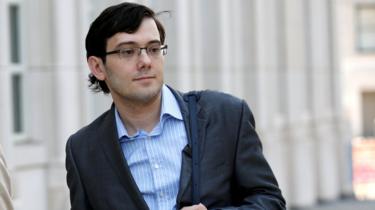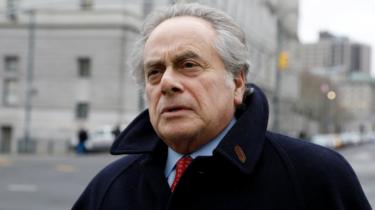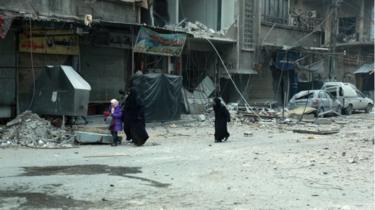 AFP
AFP
The Syrian army has made a significant advance in its effort to take rebel-held Eastern Ghouta, reports say.
Troops have cut off the region's biggest town, Douma, and isolated another, according to UK-based conflict monitors the Syrian Observatory for Human Rights (SOHR).
The advance would effectively split the region into three parts.
The Syrian government began a major offensive last month to re-take Eastern Ghouta, near the capital Damascus.
Since then they have reportedly taken control of half of the region, in an advance that has left around 1,000 civilians dead over the past three weeks, according to SOHR.
The UN has called the bombardment "unacceptable", saying it amounts to "the collective punishment of civilians".
The military has been accused of targeting civilians, but it says it is trying to liberate the region - one of the last rebel strongholds - from those it terms terrorists.
What's happening on the ground?
A clear strategy of the Syrian government's offensive in Eastern Ghouta has been to divide the enclave into isolated sections and so cut off rebel support and supply networks, the BBC's Arab Affairs editor Sebastian Usher says - and now the government appears to have all but achieved that goal.
The Syrian government has reportedly captured the central town of Misraba, and advanced onwards into surrounding farmland.
Misraba is located along a major road that links Douma, in the north, with another big town, Harasta, in the west.
If confirmed, the advance leaves the enclave divided into three - Douma and its surrounding towns in the north, western Harasta, and the rest of the territory in the south.
Syrian state television also said the army had splinted Eastern Ghouta, but a spokesman for one of the main rebel groups told Reuters neither Harasta nor Douma were cut off.
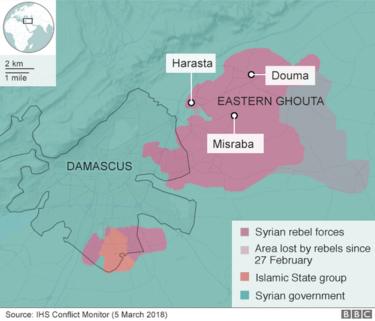
Meanwhile an opposition website said that a group of fighters from the jihadists Hayat Tahrir al-Sham (HTS) arrived in central Hama province from Eastern Ghouta, a day after an evacuation deal was reached.
On Friday a UN convoy was able to successfully deliver aid to Eastern Ghouta, after previous deliveries were halted by shelling.
Some 400,000 people are still thought to live in the area, seven years into Syria's civil war. It has been besieged by government forces since 2013.
Who are the rebels?
The rebels in Eastern Ghouta are not one cohesive group. They encompass multiple factions, including jihadists, and in-fighting between them has led to past losses of ground to the Syrian government.
The two largest groups are Jaish al-Islam and its rival Faylaq al-Rahman. The latter has in the past fought alongside HTS.
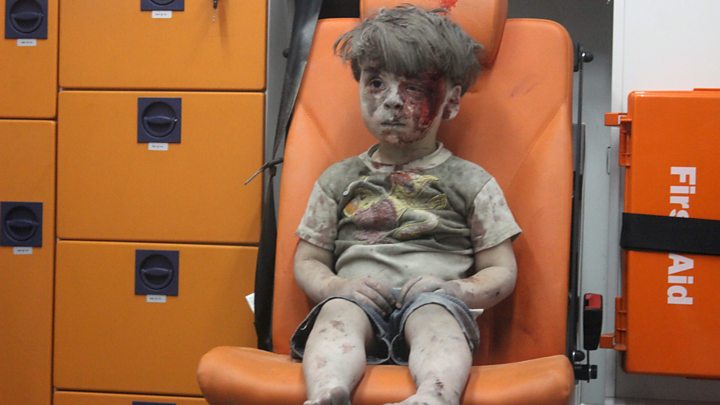
Eastern Ghouta is so close to Damascus that it is possible for rebels to fire mortars into the heart of the capital, which has led to scores of civilian deaths.
The Syrian government is desperate to regain the territory, and has said its attempts to recapture it can be attributed directly due to the HTS presence there. HTS was excluded from a ceasefire agreed at the UN that has yet to come into effect.
The group is an alliance of factions led by the Nusra Front, which sprang from al-Qaeda.
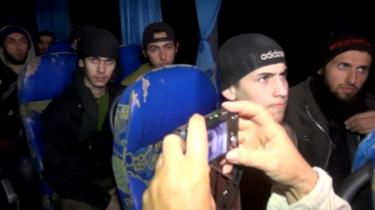 AFP/SANA
AFP/SANAWhat else is happening in Syria?
In January, Turkey began an offensive to oust the Kurdish YPG militia from the Afrin region in northern Syria, near the Turkish border.
Turkish troops, and some allied Syrian rebel militias, are now on the outskirts of Afrin town, the SOHR says.
Both the SOHR and an embedded news agency reporter said that Turkish forces had captured a military base from Kurdish groups and were seen taking heavy machine guns out, while exchanging fire with Kurdish fighters.
Turkey regards the YPG as a terrorist group and says it is linked to the banned Kurdistan Workers' Party, which has fought an insurgency for Kurdish autonomy in Turkey for three decades.
Kurdish media report that Turkish forces have blown up public water facilities, cutting off drinking water supplies to hundreds of thousands of civilians.
Turkey's President Recep Tayyip Erdogan said his troops could enter the town "at any moment". He said they would "purge" the town and then carry on further east.
